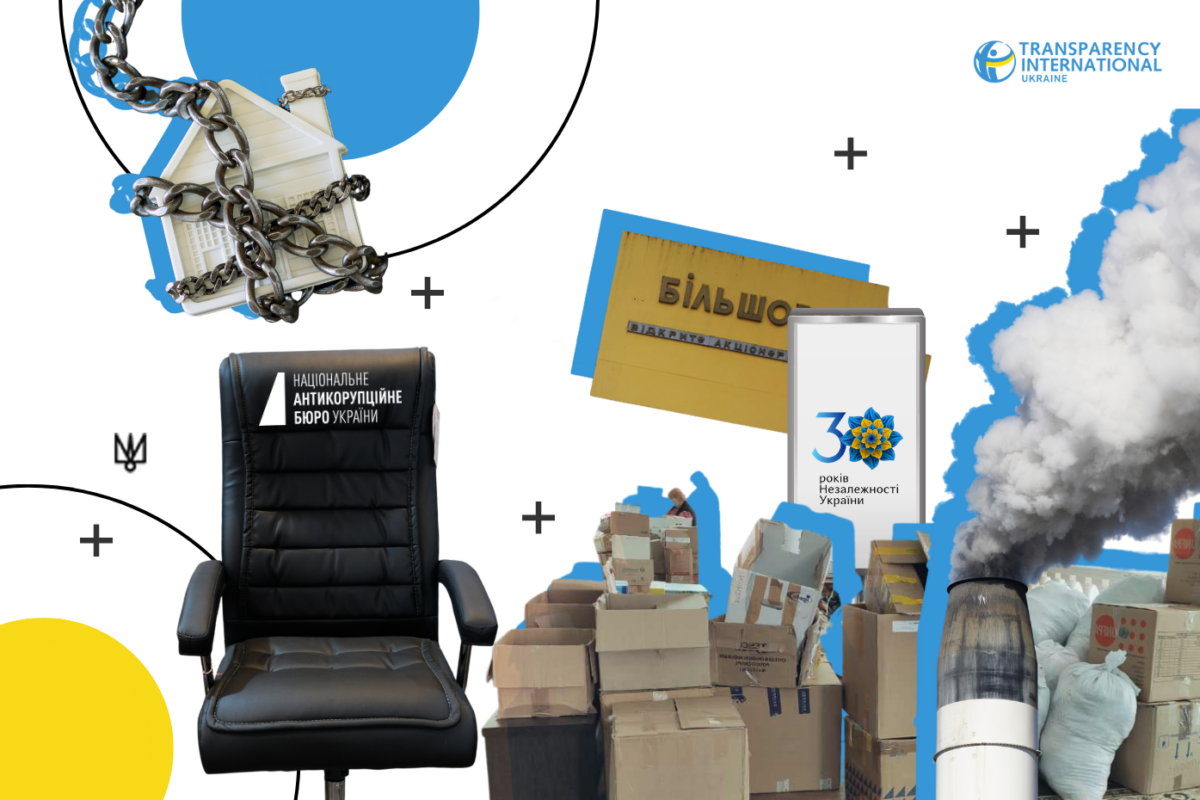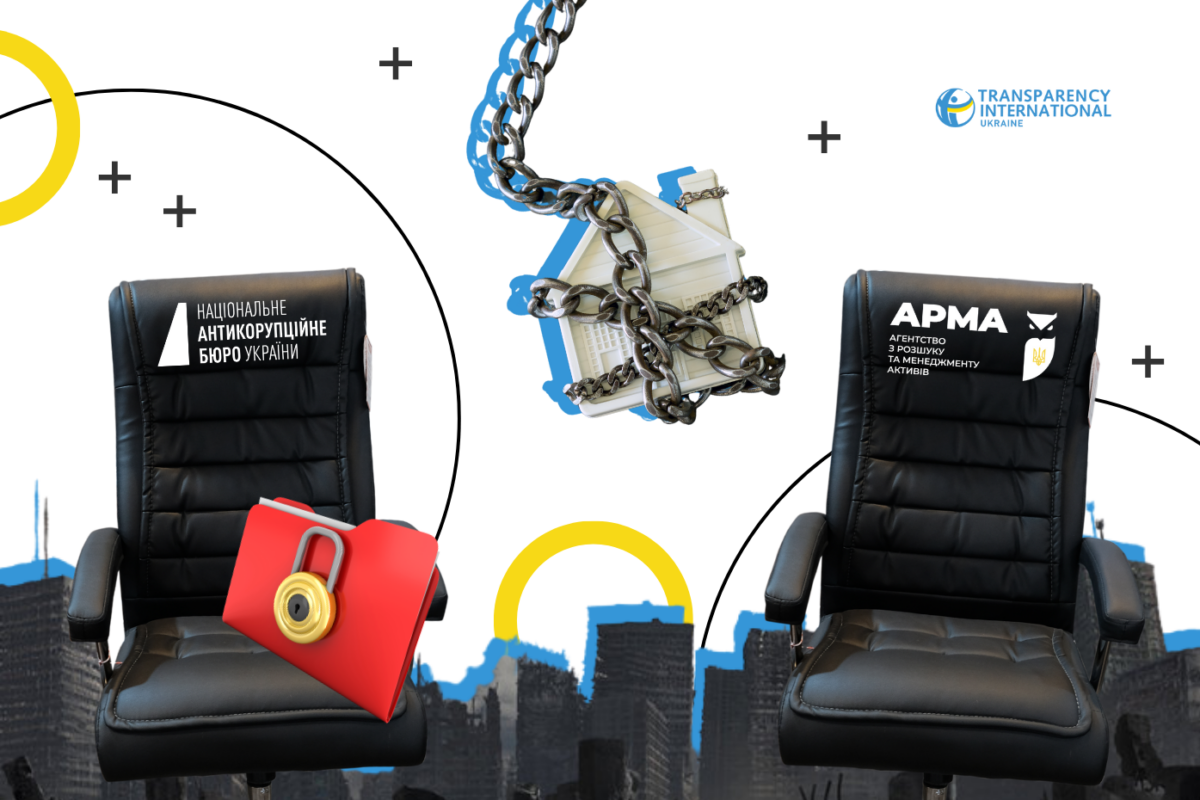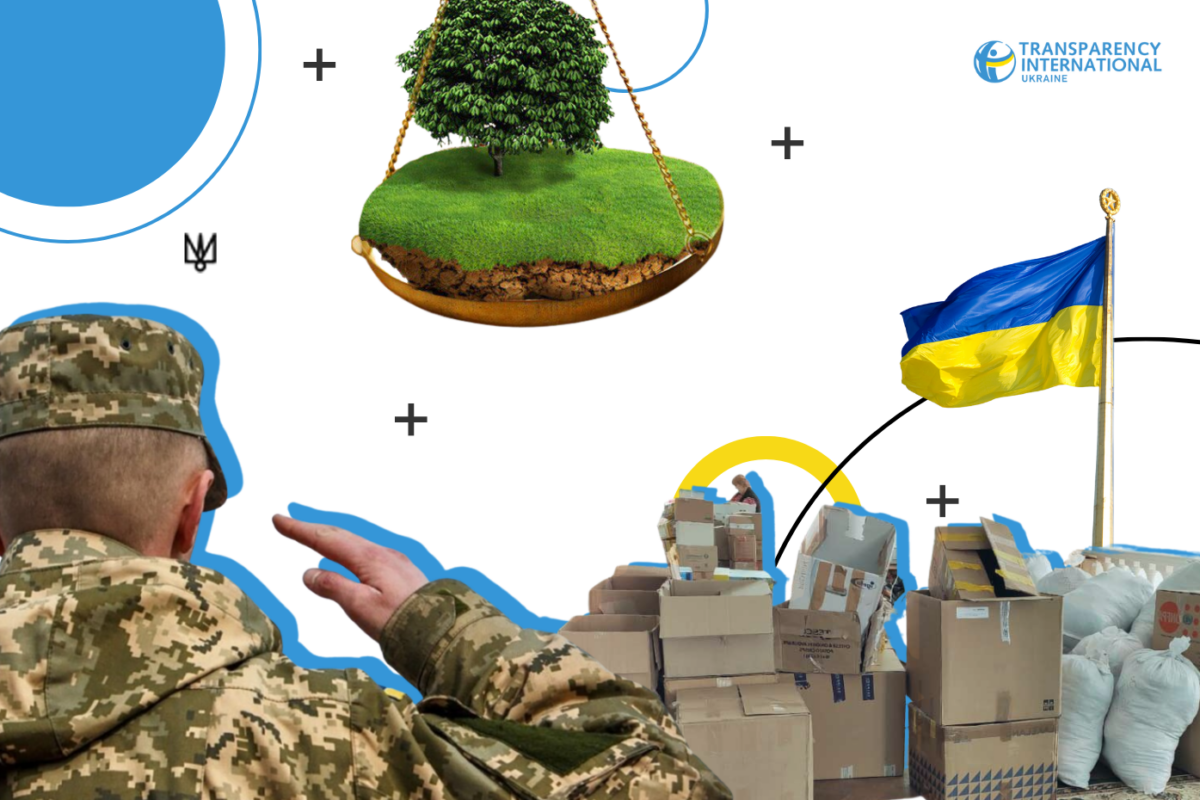

However, after the first shock and the relative “normalization” of life, the first talks about the reconstruction and restoration of the country began. At that time, both the state apparatus and citizens realized: in wartime, overcoming corruption is just as important because this will be the basis for further victory, effective reconstruction, and full and rapid integration with the EU.
That is why, for all corruption fighters, there was even more work than before because war crimes added to the already familiar challenges.
On the Anti-Corruption Day, Transparency International Ukraine has decided to analyze what is happening to our state institutions, and why today we cannot forget about the intensified fight against corruption.
How has the context changed because of the war?
In the field of public property, we have lost both an internal and an external investor. The internal one impoverished, joined the defense, or went abroad, the external one does not risk investing because the shelling of Ukraine continues. The country lost a serious part of its property together with the territories, or it was destroyed during the bombing and shelling. And although the goal of competitively selling illiquid and non-core assets remained, it is increasingly difficult to implement.
Moreover, since 24 February, access to all still public data was closed. This affected public control, in particular, in public procurement. During the full-scale war, the Cabinet of Ministers allowed the conclusion of direct contracts, neglecting competition. As a result, the number of published contracts decreased 2.6 times compared to 2021, and the number of auctions also decreased 4 times.
At the same time, it became practically impossible to monitor the fortunes of civil servants after February 24. The register of electronic declarations has also stopped its public work, and officials no longer need to report their income to the NACP.
This is allowed until the end of martial law, but CSOs demand that the declaration be resumed.
Changes may have been appropriate in the early stages of the full-scale war, but now, such security measures are definitely an exaggeration. In addition to the impossibility to exercise financial control over the fortunes of officials, in the absence of declaration and public access to declarations, it is impossible to exercise public control over the integrity of candidates participating in competitions for leading positions in government agencies.
Similarly, the issue of competitions for key anti-corruption positions remains open. Although the competition for the head of the SAPO ended with the appointment of Oleksandr Klymenko, which is already marked by numerous new anti-corruption proceedings, two more competitions are at an active stage.
An epic with the competition for the selection of the head of the Asset Recovery Management Agency continues. The competition, finally launched last year, was eventually declared as such to have not taken place. Thus, the selection commission started the second circle in trying to find the leader of the ARMA. Currently, the acceptance of documents from candidates is in progress, and subsequently, screening through testing for knowledge of the legislation and general abilities, as well as the stage of interviews will begin. Let us remind you that the Agency has been working without a head for more than three years.
Moreover, this year, the powers of Artem Sytnyk as the director of the National Anti-Corruption Bureau have expired. For a long time, the competition for the election of a new NABU director was also blocked, but as of now, the selection has finally entered the active phase, and now acceptance of documents from candidates is also underway.
The confiscation and management of the property of Russian oligarchs has also become a serious challenge.
Thus, before the full-scale invasion, Ukraine did not have special legislation to cope with this task. The institution and tools for confiscation and recovery of assets are quite new, they began to appear in modern law just 20-30 years ago. Their main point is the termination of property rights, which, like any other human right, cannot be terminated without sufficient grounds.
The first case of the confiscation of such property in Ukraine — the one concerning the fortunes of the russian oligarch Vladimir Yevtushenkov — showed that the Ukrainian state apparatus is not yet able to establish effective management of confiscated assets.
Back on September 1, the High Anti-Corruption Court ruled to confiscate the assets of russian oligarch Vladimir Yevtushenkov. We are talking about his shares in Ukrainian companies, which he owns through the joint-stock company Holding Company “Elektrozavod.” The oligarch decided not to appeal, so, the court decision came into force on September 6. However, the government is still looking for ways to effectively dispose of this property.
Yevtushenkov’s case showed that it is not enough just to pass legislation on confiscation, find Russian assets, and seize them. It is important that this property then works properly for the interests of the state and its citizens.
And, of course, the urgent now and even more urgent after the victory will be the issue of rebuilding our country after the war. Even after the victory, Ukraine will be recovering from the consequences of the Russian invasion for a long time. In particular, the country already needs to rebuild the economy and what was destroyed.
However, several risks await us along the way. First of all, it will be necessary to allocate resources for reconstruction. This may cause problems because for quality work, it is necessary to assess losses, create a unified reconstruction strategy, and limit political influence on it.
It is also important that the implementation of the planned projects be of great quality. And this is impossible without effective planning and consistent control at all stages.
Finally, in many ways, the success of restoration will depend on the government’s willingness to put significant effort into it. To do this, it is necessary to implement the necessary reforms, weaken political control in some places so that partners do not lose confidence in reconstruction and do not stop supporting it.
And what about the local level?
The key war challenges in the fight against corruption at the local level are primarily related to the decrease in the transparency of the work of local governments and the reduction of access and participation of citizens. At the same time, anti-corruption measures themselves are neither a priority, nor are there resources for them.
In the context of restrictions on the work of open data portals, websites of local self-government bodies and their divisions, the amount of available information on the work of city councils decreases. This also applies to information on lease agreements, the provision of residential premises, the work of land cadastres, procurement, etc.
Collegial local governments limited pre-war access opportunities: meetings of city councils and their executive committees are announced and broadcast less often, agendas or minutes of meetings are not always published. Meetings are often held in a closed format due to the consideration of sensitive information (although it would be possible to hold only part of the meeting closed where sensitive information is considered).
At the same time, city councils receive a huge amount of humanitarian and charitable assistance, which is not always properly accounted for and distributed. And this is given, as we noted above, that the implementation of anti-corruption programs is now on pause. Such measures are quite understandable, but they directly affect the resistance to corruption.
The issues of professionalization were also added to the challenges. For example, in public procurement, there is a shortage of people who are able to efficiently and promptly conduct tenders at the local level — some specialists went to war, some have moved. In the end, suppliers have also changed, and under such conditions, it is more difficult to ensure competitive procurement.
How to make Ukraine stronger under such conditions?
The experience of TI Ukraine proves that the results are possible if you combine the efforts of the state, society, business, and international partners. This approach demonstrates effectiveness in wartime conditions.
To implement changes, motivation and political will, deep expertise and specialized knowledge, financial and human resources, as well as a specific action plan are needed. Therefore, Transparency International Ukraine offers state and local authorities such steps for the coming year.
- To open data where it is possible so as not to harm the interests of security and defense.
- To protect public procurement rules so that Ukraine’s recovery takes place efficiently, transparently, and competitively.
- The central government should actively cooperate with the local authorities on reconstruction issues so that the processes take place synchronously and comprehensively.
- To continue the course of privatization and liquidation of unprofitable enterprises.
- To invest resources in the development of state IT systems, such as Prozorro, Prozorro.Sale, Diia, etc.
- To create an environment for a qualified high-tech business that will join the reconstruction and development.
- To establish effective management of confiscated assets. To this end, the Cabinet of Ministers needs to develop and approve the Asset Recovery and Management Strategy and the relevant Action Plan to it, which will regulate all processes after the decision-making on confiscation.
- To hold competitions responsibly and appoint professional, independent, and honest heads of the NABU and ARMA, as well as to start preparations for the competition to elect the head of the NACP, which is to be held next year.
- To demonstrate readiness and start solving all these issues now because such actions will not only help overcome the existing problems, but also lay the foundations for Ukraine’s rapid accession to the European Union.
These steps are entirely within the power of a country that is resisting the most powerful military threat of this century. So, we just need to take them in order to preserve the real independence of our country today, tomorrow, and decades later.








